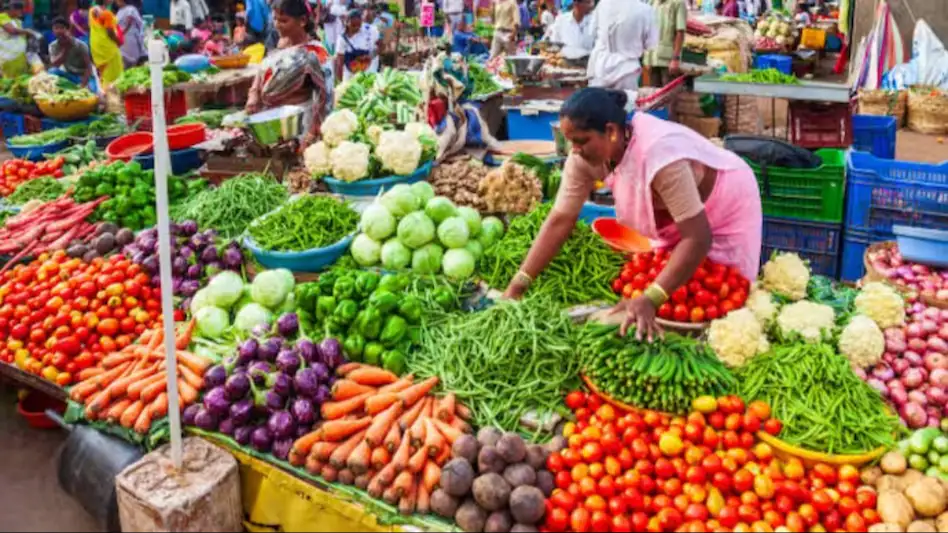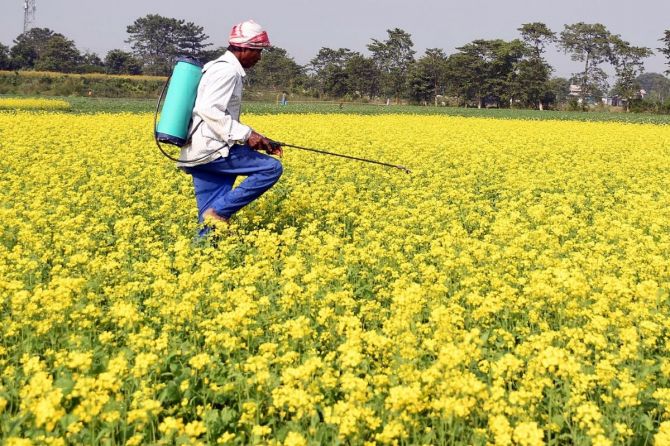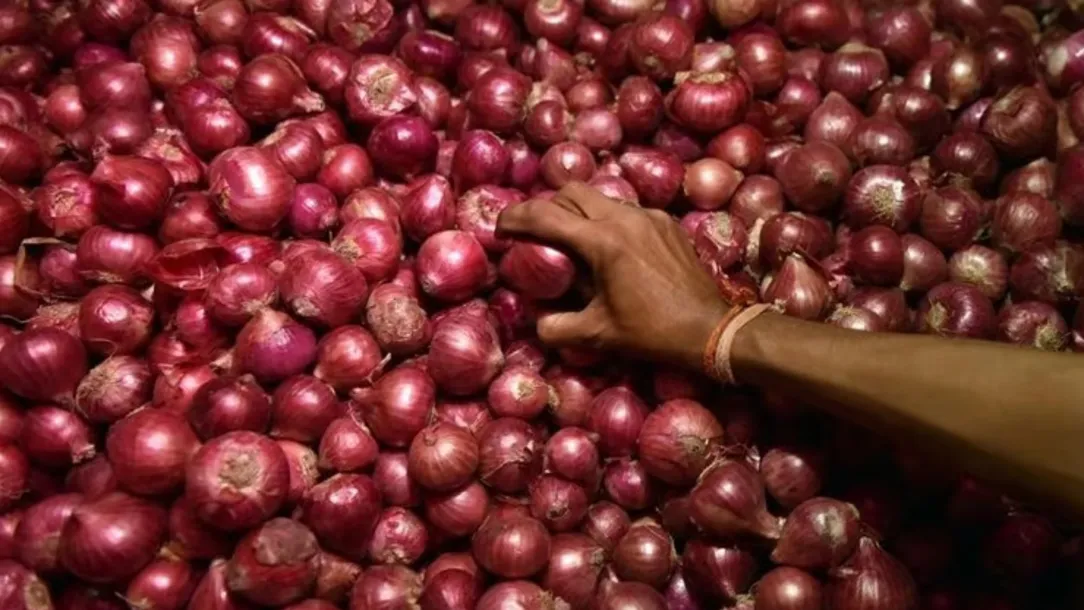India has authorized the export of a restricted quantity of onions to the United Arab Emirates (UAE) and Sri Lanka amidst stringent export regulations on the staple vegetable. The Ministry of Commerce and Industry, in coordination with the Directorate General of Foreign Trade (DGFT), issued a notification permitting the export of an additional 10,000 metric tons (MT) of onions to both the UAE and Sri Lanka, facilitated through the National Cooperative Exports Limited (NCEL).
This decision comes in the wake of India’s continued efforts to manage onion exports amidst fluctuations in domestic availability and international demand. In March, the Indian government had sanctioned the export of 50,000 tonnes of onions to Bangladesh.
However, despite these allowances, the Indian government has extended the ban on onion exports until further notice. Initially imposed in early December 2023 until March 2024, the ban has been extended indefinitely. Export permissions will be granted solely based on central government approval, considering requests from other countries.
The export of onions from India has been subject to various regulatory measures aimed at stabilizing domestic prices and ensuring adequate supply in the domestic market. In August, the government imposed a 40 percent duty on onion exports to curb price inflation and enhance domestic availability. Additionally, a Minimum Export Price (MEP) of USD 800 per tonne was set for onion exports, effective from October 29.
Notably, the export duty exemption was granted for ‘Bangalore rose onion,’ a specific variety with a Geographical Indication (GI) tag, subject to certification from the Horticulture Commissioner, Government of Karnataka.
In response to rising onion prices, the Indian government has been releasing onions from its buffer stock. The buffer stock, maintained to address supply shortages and stabilize prices during lean seasons, has been expanded to 300,000 tonnes for the 2023-24 season, up from 251,000 tonnes in the previous season.
Furthermore, procurement of rabi onions for the 2024-25 season commenced earlier than usual, with a target of procuring 500,000 tonnes during the rabi season. Rabi onions, harvested from April to June, constitute a significant portion of India’s onion production and play a crucial role in meeting domestic demand until the Kharif crop is harvested later in the year.
India’s decision to permit limited onion exports to the UAE and Sri Lanka reflects a delicate balancing act aimed at managing domestic supply, stabilizing prices, and meeting international obligations amidst challenging market conditions. As the government continues to monitor onion availability and demand dynamics, regulatory measures will likely remain a key tool in ensuring food security and price stability in the domestic market.
India’s Policy Response
As India grapples with the intricacies of onion exports amidst domestic demand fluctuations and international market dynamics, the recent policy measures underscore the complexities inherent in managing agricultural trade. The decision to allow limited onion exports to the UAE and Sri Lanka while extending the ban domestically reflects India’s nuanced approach towards balancing conflicting interests of ensuring domestic availability and meeting international obligations.
The authorization of onion exports to specific destinations comes against the backdrop of stringent export regulations aimed at stabilizing domestic prices and safeguarding food security. The extension of the export ban until further notice highlights the government’s cautious approach in managing onion supplies amid uncertainties in production and consumption patterns.
India’s onion export policies have been subject to periodic revisions and adjustments in response to changing market conditions and socio-economic imperatives. The imposition of export duties and Minimum Export Prices (MEP) aims to curb speculative trading and ensure fair pricing in the domestic market. Additionally, exemptions for specific varieties like ‘Bangalore rose onion’ underscore the recognition of geographical indications and the promotion of niche agricultural products.
The role of buffer stocks in mitigating supply shortages and price volatility cannot be overstated. The expansion of buffer stock levels for the 2023-24 season reflects the government’s proactive stance in enhancing food security and stabilizing prices during lean periods. Moreover, the early procurement of rabi onions for the 2024-25 season signifies strategic planning to preempt potential supply disruptions and mitigate market uncertainties.
India’s approach towards onion exports encapsulates broader policy objectives of promoting agricultural sustainability, enhancing farmer livelihoods, and ensuring food security. By striking a delicate balance between domestic imperatives and international commitments, the government aims to foster a resilient agricultural sector capable of meeting diverse challenges and opportunities.
However, the efficacy of export regulations and buffer stock management hinges on effective implementation and monitoring mechanisms. Timely interventions, informed by real-time data and market intelligence, are essential to mitigate risks and capitalize on emerging opportunities in agricultural trade.
Moving forward, India’s onion export policies are likely to evolve in response to changing global market dynamics, climatic conditions, and technological advancements. Embracing digital solutions and supply chain innovations can enhance transparency, efficiency, and resilience in agricultural trade, thereby bolstering India’s position as a reliable supplier in the global marketplace.
Overall, India’s management of onion exports reflects a multifaceted approach that seeks to reconcile competing priorities of domestic food security and international trade obligations. While challenges persist, proactive policy measures, supported by robust institutional frameworks and stakeholder engagement, are critical in navigating the complexities of agricultural trade and fostering sustainable development. As India continues to navigate the intricacies of onion export management, the emphasis remains on fostering resilience, inclusivity, and innovation across the agricultural value chain to ensure the long-term prosperity of farmers and consumers alike.


 Opinion3 years ago
Opinion3 years ago
 Entertainment8 years ago
Entertainment8 years ago
 Entertainment8 years ago
Entertainment8 years ago
 Fashion8 years ago
Fashion8 years ago
 Opinion4 years ago
Opinion4 years ago
 Entertainment8 years ago
Entertainment8 years ago
 Politics8 years ago
Politics8 years ago
 Entertainment8 years ago
Entertainment8 years ago





















